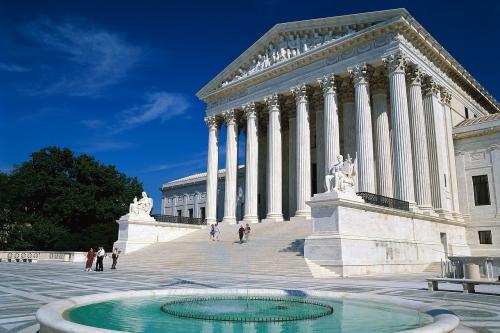U.S. Supreme Court Affirms Lower Court Rulings in Dollar General

On June 23rd, the U.S. Supreme Court ruled in Dollar General v. Mississippi Band of Choctaw Indians, a case with broad potential implications for American Indian tribes. In a 4-4 affirmance, the Court offered a ruling without opinion, simply stating that the lower court ruling in favor of the tribe “is affirmed by an equally divided Court.” As a result, tribal courts retain the jurisdiction to adjudicate civil claims against non-Indians.
Questions of jurisdiction were at the heart of the case, which originated upon the Mississippi Band of Choctaw Indians reservation lands and a Dollar General store thereupon. A Dollar General employee allegedly committed a sexual assault against a tribal minor whose family brought suit against the company.
Whether tribal communities can bring claims against non-Indians for civil, compensatory damages fueled Dollar General’s challenge of Choctaw jurisdiction. The twenty-billion-dollar corporation argued that tribes do not possess such jurisdiction while the tribe and lower federal courts all ruled that tribes do possess such authority. Dollar General had entered into contractual agreements with the tribes to do business upon the community’s lands and had initially agreed to the terms of recognizing tribal jurisdiction.
The Supreme Court had ruled in the landmark 1978 case, Oliphant v. Squamish Tribe, that tribes lack criminal jurisdiction against non-Indians, a ruling that has deeply impaired tribal capacities to protect their own citizens and members, especially women and children, from non-Indian abuses. By affirming the lower federal courts’ rulings in favor of the tribe, the June 23rd decision allows the tribe to continue its civil claims against the corporation, particularly as no criminal charges were ever brought against the employee by federal prosecutors. As the U.S. Commission on Civil Rights recently stated about the ruling, “this case has left in place the right of Native American governments to make laws on their land and have cases adjudicated in tribal courts, under tribal law, by tribal judges, with tribal rules of procedure. Native American sovereignty, so often under attack, has been upheld.”
Several YGSNA members worked throughout 2015-2016 to draw attention to the case, particularly to the potential outcomes that could further erode tribal communities’ abilities to protect their respective tribal members and keep their civil jurisdiction over non-Indians. Participating in two separate amicus briefs on behalf of the tribe and writing in such national publications as The Nation and New York Times, YGNSA members worked to raise awareness of this ongoing challenge to tribal sovereignty.
For More See:
http://www.scotusblog.com/case-files/cases/dollar-general-corporation-v-…
http://www.usccr.gov/press/2016/PR_DollarGeneralStatement_7-25-16.pdf